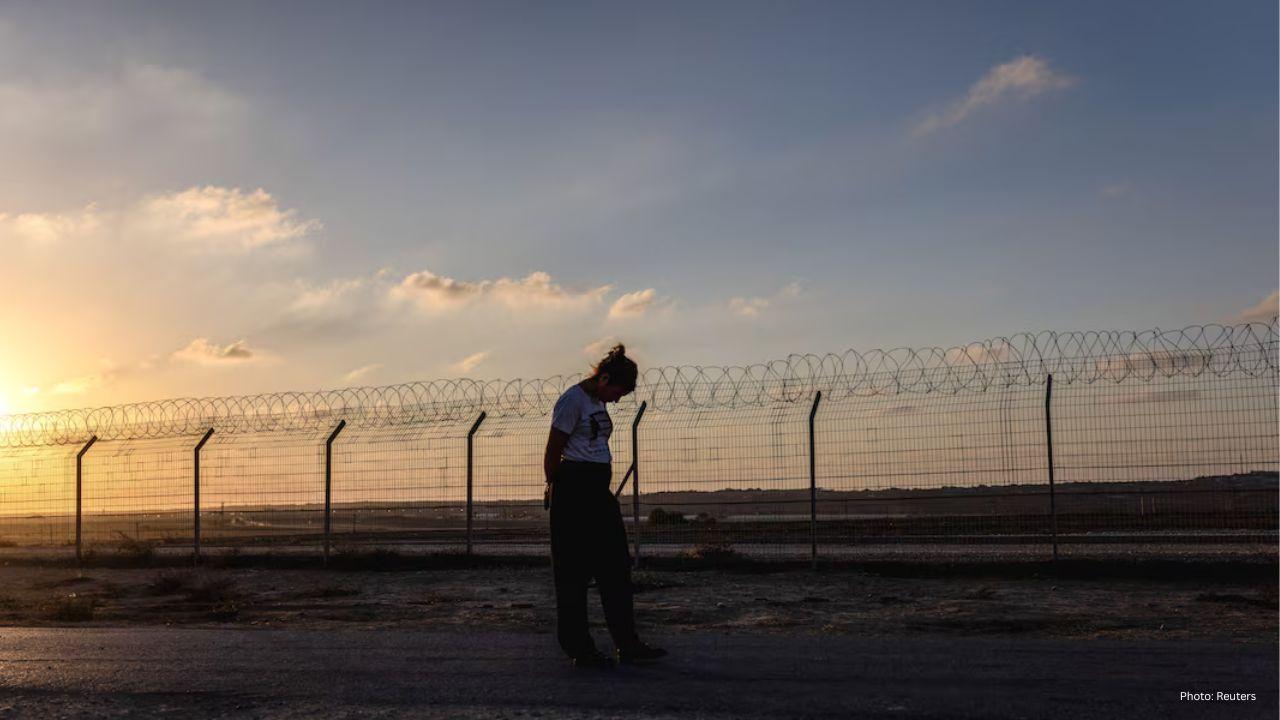
Post by : Saif Nasser
Two years after one of the darkest days in Israel’s history, many families from Kibbutz Nahal Oz are still unsure if they can ever return home. The small farming community, located near the Gaza border, was attacked by Hamas gunmen on October 7, 2023. The memories of that day continue to haunt those who survived.
Avishay Edri, a 41-year-old father of four, still remembers every moment of the 17 hours his family spent hiding in a bomb shelter. Outside, gunmen stormed the kibbutz, killing 15 residents and taking eight others as hostages to Gaza. The fear, noise, and sense of helplessness left a deep mark on everyone who lived there.
Today, as a ceasefire holds between Israel and Hamas, Edri is torn between returning home and keeping his family safe. “It has become very important to go back for emotional closure,” he said, “but we are still afraid of what might happen next.”
Kibbutz Nahal Oz sits just a few hundred meters away from Gaza, separated only by fields and barbed wire. The area once symbolized peaceful living, with children playing outdoors and families farming the land. But after the attack, that peace was destroyed. Even now, two years later, many homes remain damaged by rockets. Burned walls, broken windows, and empty houses serve as painful reminders of the violence. Although the Israeli government has lifted the state of emergency in the border areas, many residents still feel unsafe.
About half of Nahal Oz’s 400 residents have not yet returned. The government has also announced that it will stop paying for their temporary housing elsewhere, in hopes of encouraging them to go back. But for many, fear and trauma are stronger than financial concerns.
Before the 2023 war, Nahal Oz was known for its spirit of peace and cooperation. Some residents, including Edri, even helped transport sick Palestinians from Gaza to hospitals inside Israel. They believed that small acts of kindness could help bridge the divide between the two sides. But the war changed that. “I was naive,” Edri said. “I thought personal efforts could prevent war, but now I know how wrong I was.”
Many residents say their faith in peace has been shattered. A recent survey by the Pew Research Center found that only 21% of Israelis now believe peaceful coexistence with a Palestinian state is possible. In 2013, that number was around 50%.
Kibbutz Nahal Oz has a long and proud history. It was founded by Israeli soldiers just three years after the country’s independence in 1948. Over the decades, it grew into a close-knit farming community known for its sunflower and potato fields. Living near the border was always risky, but residents saw it as part of their duty to help protect Israel’s land and people. That belief was shaken in 2023 when Hamas gunmen crossed the border, killing more than 1,200 people across southern Israel and taking hundreds of hostages.
The attack was filmed and shared live on social media using phones stolen from residents, making the horror even more public. Israel responded with a massive military campaign in Gaza, which local health officials say has killed over 68,000 Palestinians.
When Reuters visited Nahal Oz recently, the signs of war were still everywhere—broken homes, burned fields, and the sound of distant explosions. Even with the ceasefire, occasional bursts of artillery could be heard from across the border.
For some, like 49-year-old Yael Raz Lachyani, returning home is an act of strength. She grew up in Nahal Oz and moved back with her family in August. Walking near the fence that divides Israel from Gaza, she remembered the days when she could visit Gaza’s beaches and restaurants in the 1980s. “I used to think about the suffering of people on the other side,” she said. “But now, my heart is too broken for that.”
Her words reflect a deeper pain shared by many Israelis who once believed in peace but now find it difficult to trust again. The trauma has not only taken lives—it has changed hearts. For families like Edri’s, the choice to return home is not just about rebuilding houses. It is about facing their fears and finding a way to live again in a place that holds both beautiful and terrible memories.
Many hope that one day, both sides will learn that endless fighting brings only more pain. But for now, that hope feels distant. The land that once symbolized coexistence now stands as a painful reminder of division and loss. As the people of Nahal Oz slowly decide their future, their story shows how war changes everything—not just buildings, but also the human spirit.


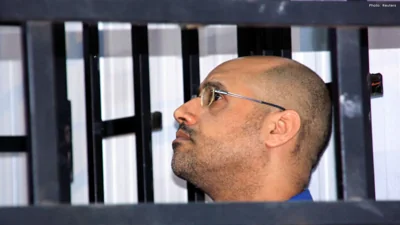
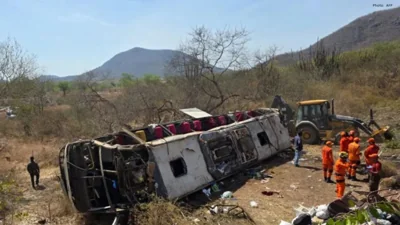
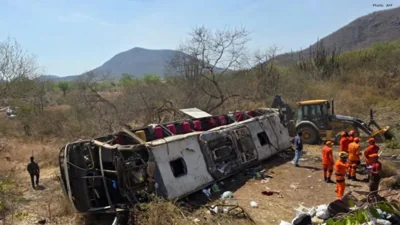

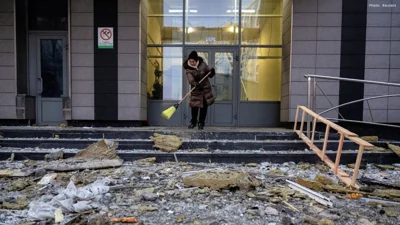



Mattel Revives Masters of the Universe Action Figures Ahead of Film Launch
Mattel is reintroducing Masters of the Universe figures in line with its upcoming film, tapping into

China Executes 11 Members of Criminal Clan Linked to Myanmar Scam
China has executed 11 criminals associated with the Ming family, known for major scams and human tra

US Issues Alarm to Iran as Military Forces Deploy in Gulf Region
With a significant military presence in the Gulf, Trump urges Iran to negotiate a nuclear deal or fa

Copper Prices Reach Unprecedented Highs Amid Geopolitical Turmoil
Copper prices soar to all-time highs as geopolitical tensions and a weakening dollar boost investor

New Zealand Secures First Win Against India, Triumph by 50 Runs
New Zealand won the 4th T20I against India by 50 runs in Vizag. Despite Dube's impressive 65, India

BTS Tour Sparks Global Demand: Mexico Appeals for Additional Shows
BTS' comeback tour creates immense demand in Mexico, prompting President Sheinbaum to urge more conc